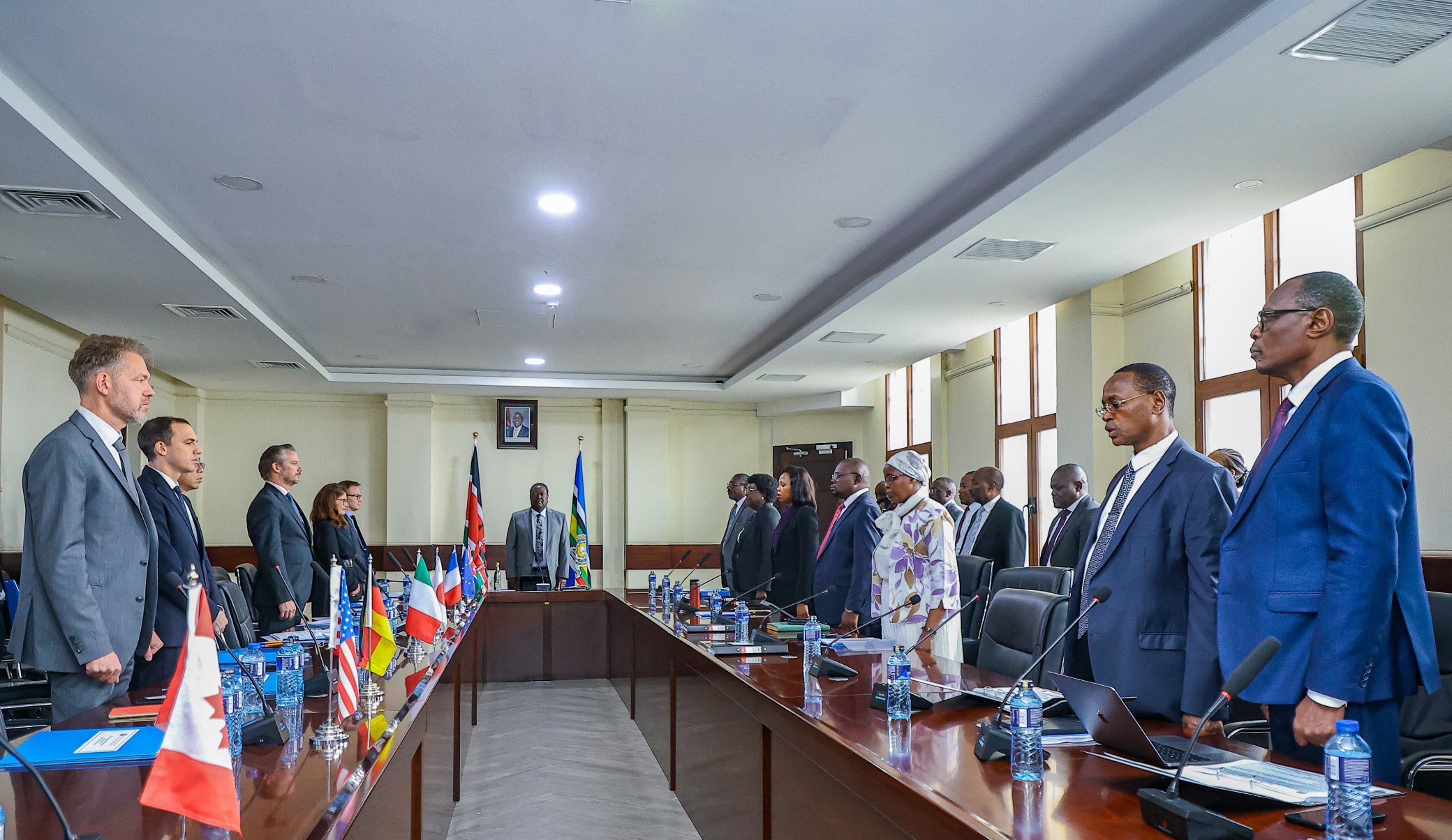Prime Cabinet Secretary Musalia Mudavadi has called for impactful collaborations among government agencies tasked with the coordination and implementation of key government programs and projects.
Mudavadi stated that many resources earmarked from donors, development partners, and taxpayers are being misused and mismanaged.
He regretted the imprudent use of critical resources due to a lack of a synergized and coordinated approach, saying it has negatively impacted the implementation of the prioritized government development agenda.
He remarked that when one arm does not understand what the other is doing in relation to a common project, fragmentation ensues, causing delays and inefficiencies.
He emphasized the need for a collective effort in harnessing available resources for maximum output, noting that Kenyans expect positive results and better service delivery that will have a lasting and meaningful impact on their lives.
The Prime CS is committed to ensuring that the National Government Coordination Secretariat (NGCS), domiciled within the Office of the Prime Cabinet Secretary (OPCS), becomes the fulcrum of unlocking bottlenecks that constrain the delivery of government services.
He highlighted that the NGCS, under its mandate of coordination and supervision of national government operations, will work tirelessly to ensure the implementation of priority policies, programs, and projects for the betterment of Kenyans.
Mudavadi underscored that OPCS is the focal point for the coordination of national government operations, with NGCS having the overarching mandate of coordination and oversight.
He stated that the government is now on a journey towards optimizing coordination and enhancing the impact of development efforts in Kenya.
Effective coordination, he noted, is not merely a procedural necessity but the bedrock upon which successful, sustainable, and inclusive development is built.
Mudavadi made these remarks while chairing the Group of Seven Plus (G7+) development partners meeting at the Railways Headquarters offices on the G7+ transport sector priority pilot programs and projects.
The G7+ Secretariat within the NGCS aims to support a collaborative approach and streamline the financing and implementation mechanisms for achieving a seamless and coordinated urban transformative transport infrastructure as one of the pilot projects for Nairobi City County.
He referenced the Partnership for Global Infrastructure and Investment (PGII) launched by the G7 members during their 48th Summit in June 2022, which pledged to mobilize US$ 600 billion to support transformative infrastructure projects in developing nations.
Mudavadi expressed Kenya’s intention to leverage this support to make the most efficient and effective use of development partner funding.
Mudavadi stated that the ultimate goal for the Kenyan government is to leverage a portion of these resources for projects that will have a lasting and meaningful impact on Kenyans’ lives, thus setting a solid foundation for more support from donors and development partners.
For the government to maximize the impact of these investments, he noted, a coordinated approach integrating efforts across various government agencies and development partners is essential.
He pointed out that the government intends to align priorities between Kenya and its G7+ development partners to efficiently and effectively deliver on prioritized projects, anchored on the Government’s Bottom-UP Economic Transformation Agenda.
The Transport Sector was chosen as the pilot sector due to its substantial impact on development and the high level of donor involvement.
The success of this pilot in the transport sector, he said, will be a game-changer, potentially triggering progress in other critical sectors such as Energy, Water, Health, MSMEs, Education, and ICT.
Mudavadi mentioned that the NGCS G7+ Secretariat has provided a coordinated approach to unlocking support and investment from G7+ partners in the transport sector, ensuring alignment with the sector’s priorities. This coordination is expected to unlock bottlenecks for implementation.
He highlighted the government’s primary focus on improving urban mobility by enhancing Commuter Rail, Bus Rapid Transit, Non-Motorised Transport systems, and the realization of the Nairobi Railway City, among other programs that will lead to road enhancement and the integration of intelligent transport systems technology.
The selected projects, identified by the State Department of Transport in the Ministry of Roads and Transport, are expected to produce real, impactful, and sustainable outcomes for the people of Kenya.
Mudavadi concluded by noting that the Nairobi Metropolitan Area, as the hub of Kenya’s economic growth generating 40% of the GDP, faces significant challenges of congestion and mobility, which negatively impact the environment and increase transport costs.
Decongesting Nairobi and improving mobility are top priorities identified in the Fourth Medium-Term Plan (MTPIV) and BETA.
Representatives in the meeting were drawn from the G7 Member States (Canada, France, Germany, Italy, Japan, the United Kingdom, and the United States of America), the European Union (EU), the Japan International Cooperation Agency (JICA), UN-HABITAT, African Development Bank (AfDB), and key entities from the Government of Kenya, including the State Department for Transport, NGCS, and the Nairobi City County Government, among others.





